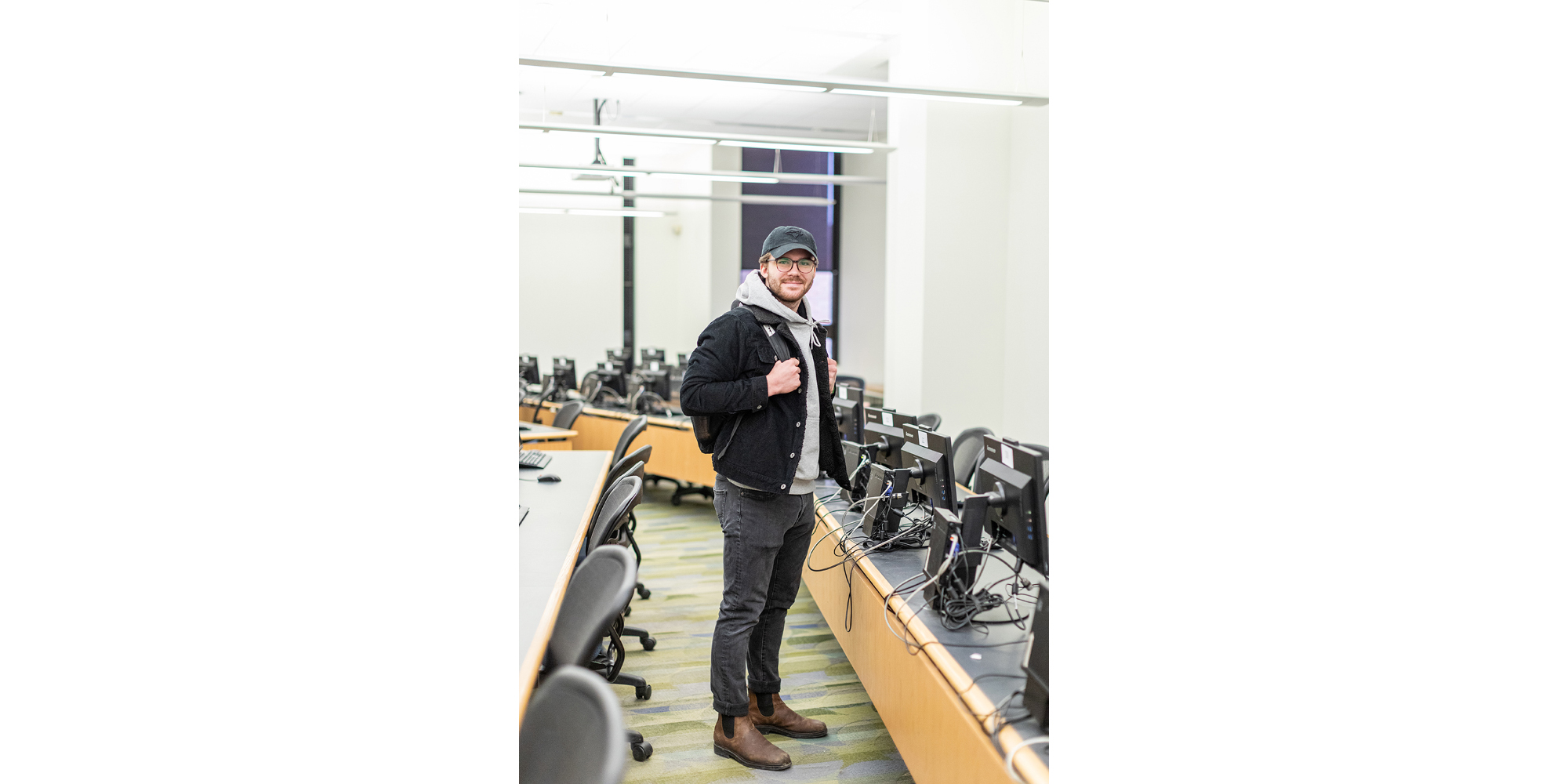Student athletes are used to the limelight, whether they’re a big football star heading to the NFL or a smaller player winning a tournament and becoming an on-campus celebrity. Even if you aren't particularly interested in sports, you probably have your own general idea of what a student athlete is and what they do. You probably think it’s pretty glamorous.
Most student athletes are just trying to get by though. More often than not, they don't play for fame, money or the hope of a pro-career. They play because they love the game and are willing to put in the effort to both obtain an academic future and do what they love. It’s the same thing as a student who joins an a capella group or writes for the school magazine.
At a school like RIT, where most of us don't consider sports very important to begin with, we still have our fair share of student athletes going for their own goals..
A Balancing Act
Most people imagine student athletes splitting their time between two things: academics and sports. Logan Drackett, a third year Business Management major and the men’s hockey starting goaltender, doesn’t believe it’s nearly as simple.
“You gotta make sure you get good meals and sleep in too. There’s a lot of things other than hockey and school,” he said.
“You gotta make sure you get good meals and sleep in too. There’s a lot of things other than hockey and school.”
Between spending his time in the classroom, in the rink and on the road, Drackett stays very busy. And this isn't too surprising.
Every four to five years, the National College Athletics Association (NCAA) puts a survey out to their student athletes asking them about everything from academics to finances to mental health, and it paints a similar picture of college athletes being spread thin.
The study found that while student athletes spend more time working on academics than athletics on average, it was usually by a narrow amount of one or two hours.
Drackett stresses though that while he loves what he does, it’s not all he’s here for.
“I came to RIT knowing it was a great academic school," Drackett said. "I didn’t come here just for hockey. I take pride in my schoolwork too.”
Drackett always keeps academics in mind. Even when on the road, he always looks for time to study and do homework.
Amy Reed, the head coach for the women’s basketball team, also acknowledges this equilibrium and how big of a role it plays. She stated how “RIT is academically rigorous, and we look for students that are going to be able to balance their athletics with their academics as well.”
The Home Advantage
Most people don’t think of RIT as a sports school. Drackett disagrees though.
“Our rink is second to none, and our student section is unbelievable," he said. "We’re lucky that hockey is super important here. We get really good fans.”
The friendship and camaraderie between Drackett and his teammates is immense. He often answers his questions in terms of the whole team and not just himself.
This reveals another huge aspect to college athletics; it’s very much about teamwork, both on and off the field.
Holland Gillis, a first year Film and Animation major and guard for the women’s basketball team, agrees. She states that “the whole team acts like a family.”
As a coach, Reed has seen how tightly knit RIT’s athletic community is as a whole.
“We have a vibrant community among athletes; our Tiger Den games are a great example of that,” she said.
Reed even works hard to build a relationship with the students she trains.
“They don’t call me by my first name," she said. "They just call me coach.”
How They Keep Up
Students often wonder how many, if any, special privileges athletes get. Gillis knows that while sports keep her busy, excuses can only get her so far.
“We’re treated equally as students," she said. "Telling a professor I can’t complete an assignment because I had too much basketball that week? I’d get laughed at.”
“Telling a professor I can’t complete an assignment because I had too much basketball that week? I’d get laughed at.”
Drackett doesn't believe he gets any special privileges. The only academic advantage he sees to being a student athlete has less to do with grades and more to do with circumstances.
“It’s not special privilege," he believes. "We need to manage our time well, so we’re in constant communication with our professors, moreso than other students. We build those relationships more.”
It isn’t surprising that student athletes often look toward their coaches and professors for support.
Regular students are not always nearly as supportive, and Drackett has seen this discrepancy first hand.
Drackett often notices, “When we do class introductions, and I say I’m on the hockey team, I sometimes get some looks.”
The previously mentioned NCAA study backs this up. It stated that student athletes often see the general student body as less supportive of athletics than school faculty and administrators.
Of course, student athletes are well aware that the student body isn't actually out to get them. Often, people who aren't involved in sports help to keep athletes down to earth.
Gillis noted that “a big stress reliever is hanging out with friends who aren’t related to my major or basketball.”
A Simple and Common Goal
Student athletes love what they do. Otherwise, they wouldn’t do it. They put so much time into the activities they love to improve upon their already impressive skills. Hopefully, even a student who has never touched a puck or basketball can understand that underlying commitment.
While the life of a student athlete is complex and interesting, sometimes it really is just about the simple movement of the game.
Drackett put it best: “As a goalie? I just have to stop the puck really.”









